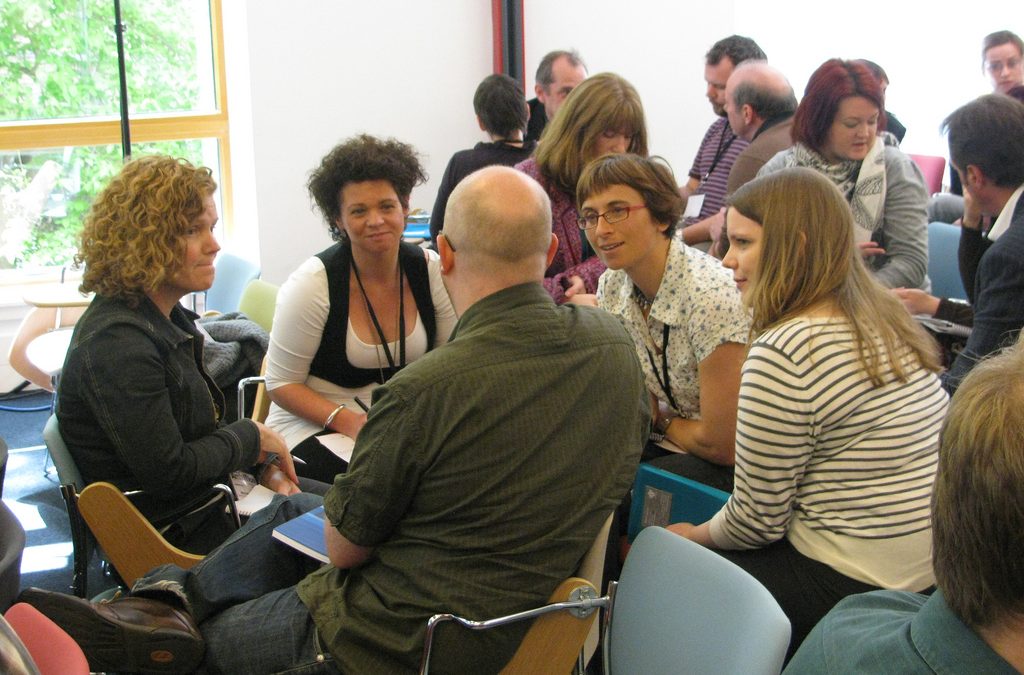Almost every week we hear stories in the media about people with financial debts they cannot repay and the misery this causes. I recently saw a headline where a lady had to decide whether to use her last £5 to buy a bus ticket to go to work or to feed her children. Real dilemma, real situation. Fortunately, in her case, she contacted Christians Against Poverty (CAP) who helped her find light at the end of the tunnel.
It is easy to think that people in debt simply spend too much. While this may be true for some, it is usually much more complex than that. I recently met a lady who used credit cards to pay for the everyday basics of life. She was able pay the minimum off her credit cards each month and keep her head above water, until she became ill and lost her job. Often things like this – unexpected bills or family breakdown – push people over the edge.
At Gateway, we run a CAP Life Skills courses which aims to help people live well on the money they have. We share practical money saving techniques and discuss how we can make money go further. The course explores the pressures we all face to spend and explains how to set up a basic budget to avoid getting into debt. We have so far run two courses and had some very positive feedback. One person said: “I have found managing money quite difficult since moving out of home and getting my first ‘real’ job. CAP Life Skills has really helped me to manage my finances and budget effectively to allow me to make the most of the money I have. Thank you.”
Another delegates wrote “Last night’s session was right up my street – it just makes people stop and think, in other words, it’s a reality check”.
I am so encouraged to hear stories like this and love to see the difference it is making.
But the eight week course is not just about money. It also looks at cooking simple meals, healthy lifestyles and relationships issues such as being loved and forgiveness. These are all essential ingredients for a balanced life. During the course, we also encourage people to think about where true satisfaction comes from and whether there is more to life than what we see around us.
At the start of each session we enjoy a good meal which helps people feel at home, breaks down barriers and gives opportunity to make new friends. Delegates tend to be fairly quiet for the first week or so; by week three, they have settled in and it is sometimes hard for the session leader to keep everyone focused! Suddenly people find there are others facing similar situations and as the saying goes ‘a problem shared is a problem halved’. It is great to see.
We were asked some fantastic questions during the sessions, such as “What is the difference between sell by, use by and best before dates on food packaging?”, “What is a priority debt?” and “Is President Trump a Christian?” We were also amused by statements like “I don’t need a TV licence because my TV works perfectly well without one”.
For me, helping people to manage money better is the best part of the course. Delegates have time to think about where their money comes from and plan where it needs to go. We talk about saving for a rainy day and having money for unexpected bills without resorting to taking out a loan at exceedingly high interest rates. Budgeting sounds stuffy and old fashioned. Maybe it is to some extent, but without keeping a close eye on our finances it is very easy for things to go wrong and we miss out on getting the things we really need. Sometimes we require a plan and strategy to handle money wisely and to be able to save for the big things such as a holiday, car, wedding, or home. Life Skills helps people to do this. I guarantee that anyone coming along you will learn lots of new things and maybe think differently about the money or credit card in our pocket.
By Alex Joiner

